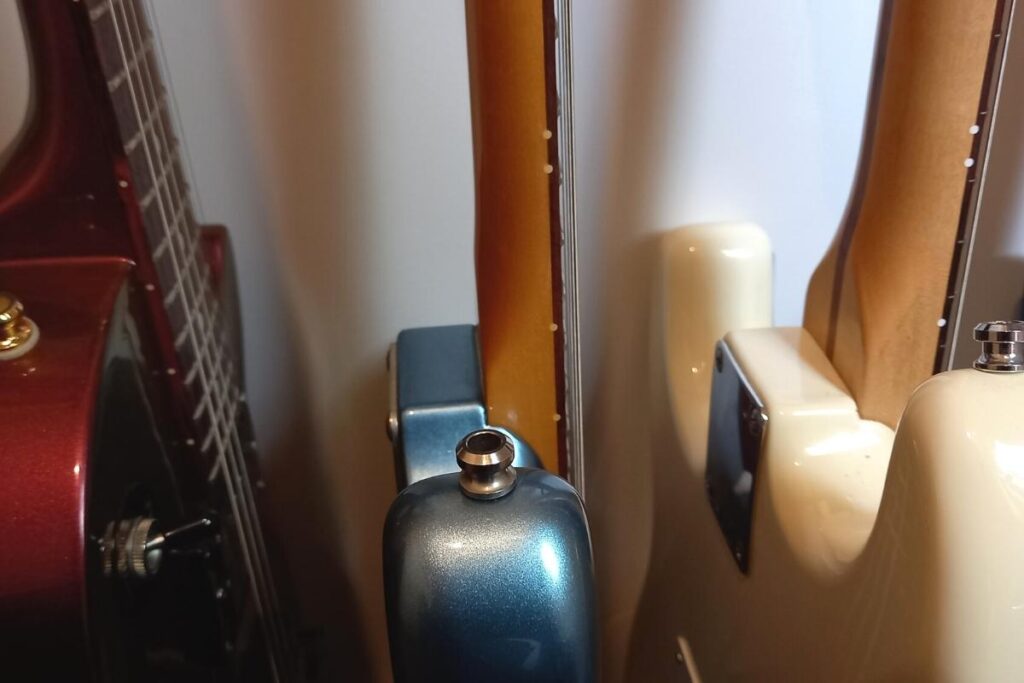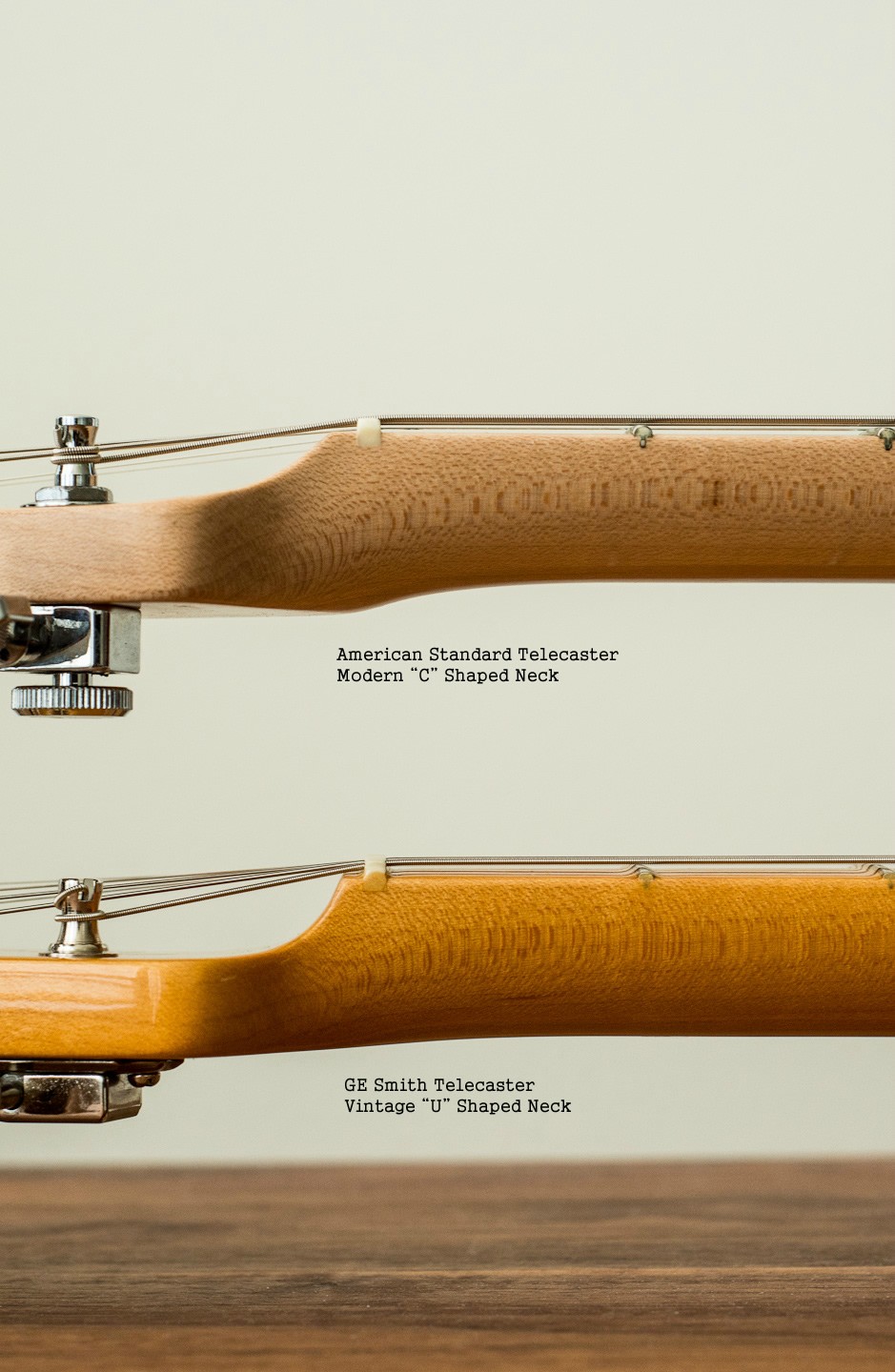Contents
While guitars often have straightforward construction, their performance is still influenced by quite a few factors and neck is a prime example. Among the many topics surrounding the neck of guitars nowadays, one stands out in terms of prominence: thick neck vs. thin neck. You also have a hard time deciding the neck thickness of your guitar and could use some help? In that case, you have come to the right place.
The Thickness Of The Necks: Insights
In case you don’t know, the neck of guitars is the part that sticks out from the main body. Furthermore, the guitar neck is what holds the frets, tuners, truss rod, … of the guitars. Apart from guitars, a number of string instruments such as basses, banjos, ukuleles, lutes and the mandolin family have necks too. About thick neck vs. thin neck, the community is at odds due to the following reasons:
- The first and most obvious reason is that different people have different hand sizes. It goes without saying that a person with small hands will struggle with playing a guitar with a thick neck. The opposite is true as well: people with big hands will not feel comfortable playing a guitar with a thin neck. Hence, the opinion on the topic will vary depending on who you ask.
- The second reason is that the thickness of a guitar’s neck does not have a significant impact on how it sounds. If a person is given two choices knowing that both will lead to the same result, that person would naturally choose based on their own preference.
- The third reason is comfort/adaptability. Various guitar necks exist nowadays and each neck boasts distinct characteristics. When you try out a guitar with a different neck from the one you’re used to, it is only natural to feel uncomfortable. If you can learn to adapt to that neck, your opinion will improve but for those who cannot adapt, their opinions should remain negative.
A Comparison Of Neck Thicknesses
Support
One of the main roles of the guitar neck is to provide hand support in that role, thick necks outmatch thin ones by all accounts. More hand support means more comfort and more grip, all of which prove essential in chording. Some guitarists also share the opinion that a thicker neck makes it easier to bend strings as well.
On the other hand, while thin necks still guarantee hand support, the level of stability is not as good as that of thick ones. Additionally, a neck that is too thin might make you feel uncomfortable if you hold barre chords and cramping is possible. On the other hand, thin necks weigh less than their thick counterparts so it’s easy to manipulate them. That is why beginner guitarists lean toward thin neck once it comes to thick neck vs. thin neck.
Of course, you must take your hand size into account as hand size is a decisive factor in finding the neck thickness that suits you.
Tone
All in all, the impact of neck thickness on the tone of guitars is subtle but still enough to alter several aspects.
For your information, since thick necks have more mass than thin ones, the tone of guitars with thick necks should be fuller. Meanwhile, the tone of guitars with thin necks should be sharper. At the end of the day, the difference in tones between neck thicknesses is insignificant. Unless you have specific desires, determine the necklace of your guitar based on comfort rather than tone.
Playstyle
As thick necks provide generous hand support, they see extensive use by rhythm guitar players, particularly those who keep their thumbs over the top of the neck. In the case of thin necks, they earn a shower of praise from those that place speed above all else. The lack of mass and lightweight construction means it’s simple for guitars to move their fingers around the fretboard. Several guitars claim that they like thin necks as they can play with light touches.
Summary
Regarding thick neck vs. thin neck, it all comes down to your needs and requirements. Keep in mind that besides neck thickness, you have other factors to consider once it comes to the neck: neck shape (C-shape, D-shape, U-shape, V-shape, etc), neck width, fretboard radius and so on. Regardless, make sure to give the guitars a go before you make a purchase.
| Thick Neck | Thin Neck | |
| Hand Support | Superior hand support | Easy to manipulate |
| Playstyle | Stable, suits rhythmic style | Quick, suits technical/solo style |
| Tones | Full | Sharp |

Hi music fan! I am Jeff. Hope that you enjoy some stuff I shared here in my personal blog.
About myself, Currently I am in charging as Artist Manager/Music Supervisor at 72 Music Management. I did managed album to Grammy Award in 2017 with 7 Nominations from 2014-2020 and had the opportunities to work with : A.J. Croce, Blind Boys of Alabama, Bobby Rush, Dom Flemons, Dustbowl Revival, Sarah Grace
Governor of the Memphis Chapter of The Recording Academy is one of a award that I am lucky to achieved.


